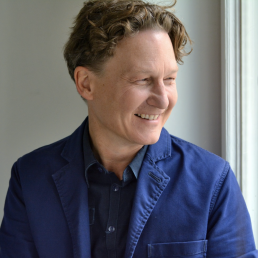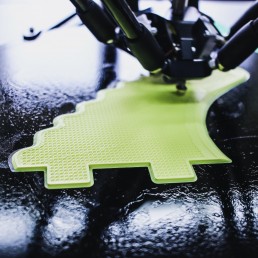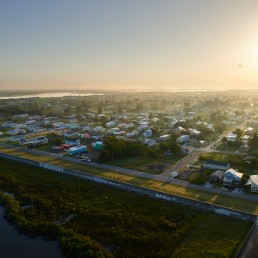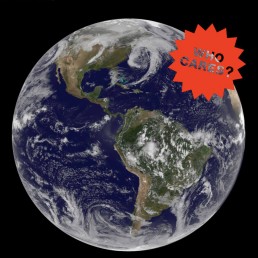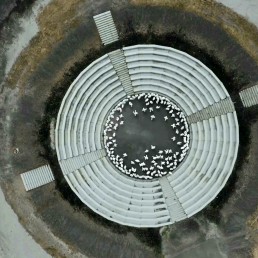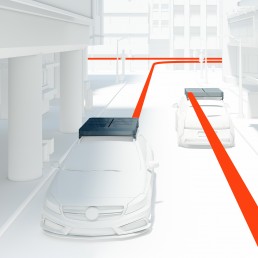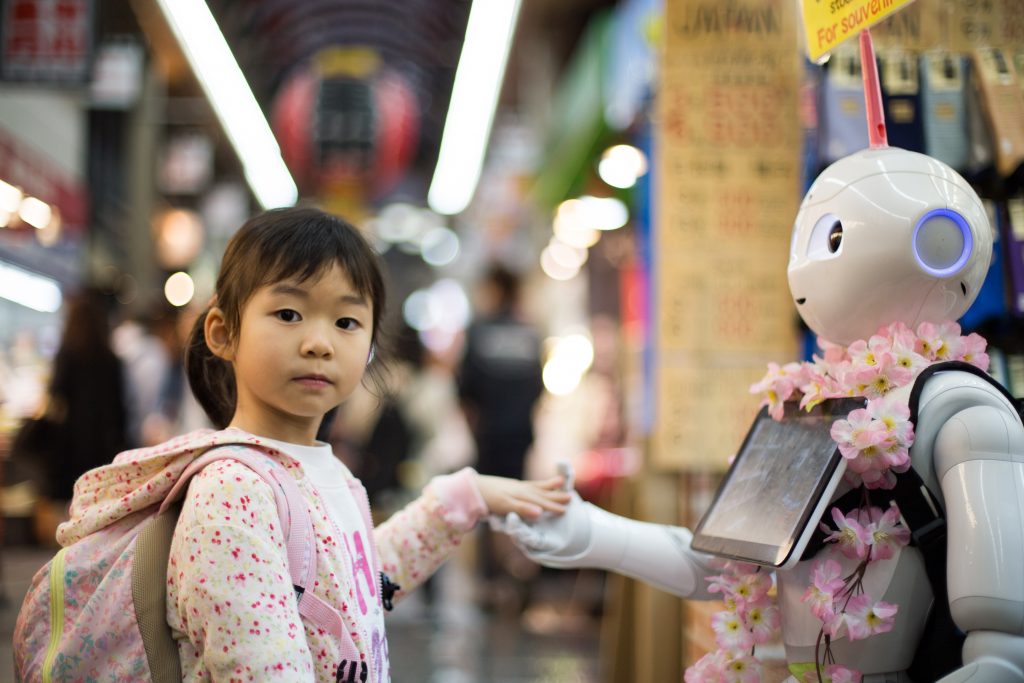
Digital Humans
How Human Does Digital Need to Be?
By Andre Wilkens, October 2017, Berlin
In 2008, the technologist Ray Kurzweil estimated the computational capability of the human brain at about 20 quadrillion calculations per second. I am impressed by our brains and can hardly believe this applies to mine as well. That aside, Kurzweil believes that to simulate the human brain, all we have to do is develop a computer with the same computational capability and some decent software to go with it. In June 2014, a Chinese supercomputer (the fastest computers are now being built in China) came in at 34 quadrillion calculations per second, which puts it at almost twice the speed of the human brain. Does that make computers superior to humans, and not only when it comes to calculating but also to thinking?
To get an impression of what the correlation of data, combined with gigantic computational capability, might look like, it is worth watching Spike Jonze’s movie „Her“. The movie’s male protagonist tests out a new operating system that has access to all of his data – all his emails, calendars, web searches, and documents and by correlating this data, knows this guy almost better than he knows himself. Since the operating system speaks with the voice of Scarlett Johansson, it shouldn’t come as a surprise that she is the real star of the film and that the male protagonist ends up falling in love with her voice and the computational power behind it. Sounds crazy – but only at first.
On second thought you realize that we are already constantly guided by digital assistants. They remind us of birthdays and anniversaries, make notes of appointments in our calendars and help us arrive on time; the weather display makes sure we are dressed appropriately even while traveling. All these services are constantly being improved and I actually rather like it. I need to be reminded, I want my travel schedule taken care of and a car rented or a hotel booked at short notice in case of a rail strike. I like that everyone can now afford their own personal assistant, even if they don’t run huge companies; no discussions necessary about overtime, days off and personal matters. The digital assistant never forgets a thing. And you can mix business and personal matters without feeling bad. You can be your own manager, complete with 24/7 assistant. If you want, you can even add a digital health coach, which will tell you to walk to appointments so you don’t fall short of your daily walking goal. If you’re stressed, it’ll recommend yoga and reduced caffeine intake. That all sounds really great. But if you have an efficient assistant, you’ll know that such an assistant makes a lot of decisions for you. Important ones, too.
Are machines superior human beings? When it comes to data management and calculation – definitely.
Does that mean we are outsourcing ourselves? Will the digital revolution, like most analogue revolutions before, eat its own children? And will those children not only come in the shape of software designers and internet gurus, but of humans themselves, because by creating machines that think better, they will create superior human beings?
A German media executive imagines sees the future like this: “There will be a small group of people who will be telling computers what to do. And there will be a much bigger group of people who will be told by computers what to do. Only the first group will be able to make a reasonable salary.” He probably imagines himself in the first group, whatever the fate of his struggling paper might be. But maybe this scenario is overly optimistic. Why would computers take orders from humans when those humans were mentally inferior to them?
Once these “better functioning humans” can do almost anything we can do and – on top of mechanical tasks – are also able to perform those tasks that require intelligent, maybe even intellectual reasoning, will we then be able to sit back, drink tea, eat well, watch football, and philosophize about the state of the world?
One of the most eminent economists of the last century was John Maynard Keynes. According to the general theory of employment, interest and money that made him famous, the state should stimulate consumption in times of crisis in order to generate demand and counteract the economic slump caused by the crisis. Even at the cost of a temporary public deficit.
Keynes was one of the smartest people around. His ideas significantly contributed to the economic miracle after WWII. The effects of the financial crisis in 2008 would have been much more devastating if it hadn’t been for the resurgence of his ideas.
In his essay “Economic Possibilities for our Grandchildren”, published in 1930, this smart guy predicted that as a result of technical progress, steadily rising productivity, and increasing wealth, our economic problems might be solved, or at least be within sight of solution, within a hundred years. In the year 2030 mankind would enjoy freedom from pressing economic cares, the greatest problem being “how to occupy leisure”, since “three-hour shifts or a fifteen-hour week” would be more than enough to fulfill all needs.
Sounds great, doesn’t it? Unfortunately, he was far off the mark. Although 2030 is still a few years away, 85 years after Keynes’ prediction we still work at least 40 hours a week and the German retirement age has been raised to 67 years. White collar workers’ hours are increasing not decreasing. And the working hour patterns of the social classes have switched. While blue collar workers mostly enjoy a collectively agreed 40 working week, white collar workers easily come in at 60 hours. Digital brings us not more leisure but rather a shortage of time.
Apparently, technical advances, higher productivity, and greater wealth result in more, not less work.
Why? Sending information has become much easier and faster thanks to email and social media, but that has not freed us up to do other things. Instead, we send more information, information that previously did not exist, and which we apparently did not need.
In order to cope with this new torrent of information and data, we invent software and training programs that enable us to reach the same level we were at before email. Psychologists also have more to do as more and more people seek their help in dealing with information overload or data overwhelm. When I first started dealing with the problem of climate change, I discovered the phenomenon of the rebound effect. Over the last 30 years the energy efficiency of our products has dramatically improved. A TV today only requires a fraction of the energy its predecessor of 30 years ago needed. We could, theoretically, continuously reduce our energy consumption, we would need to produce less and less energy from fossil fuels like coal and gas, and we could therefore reduce greenhouse gas concentration in the atmosphere and keep global warming in check. We could get climate change under control.
In reality, we are producing more and more energy, and greenhouse gas emissions are on the rise. Even Germany, a climate change model country, can’t escape this trend. Why? Because all energy reduction is immediately offset by new energy needs. Although TVs are much more energy efficient than they used to be, we buy bigger TVs with larger screens, we buy more of them, and replace them more often.
In sum, we need more energy than before. That’s the rebound effect. And it may help to explain why many digital innovations don’t reduce our workload but rather increase it.
Take email, for example. Instead of simply sending letters digitally, the invention of email has made us produce ever more mail that we send to ever more people. The time it takes to send a message from A to B has been reduced by days, but instead of putting our new freedom to good use, we now produce so much mail that we drown in it.
Machines are taking over more and more of our tasks: with the time we free up we create things that we did not need before and then create programs that help us get back to the state that we were in before machines relieved us of the work.
Digital’s answer to this is “life hacking”, i.e. using digital help to organise your life efficiently. Life hacking gives you more time to think about how to use your time even more efficiently.
We are becoming more efficient, in order to be able to become even more efficient. Is that the meaning of digital life?
I am not worried that machines won’t leave anything for humans to do. Work is a perpetuum mobile. But how much of the work we do today is actually useful? And how much is work for its own sake? I would suggest about 70 percent. Am I exaggerating?
Back to Keynes. The economy needs consumption. Consumption keeps the economy going. And, until now, consumption has needed people. Even if machines take over more and more of what we do, we need people to consume things. Maybe this will be the main task of humans in the future – consuming. Or can machines take over this task as well? They already do, in the case of electricity: more and more technology requires and consumes more and more electricity. Is it conceivable that intelligent machines will themselves need more and more gadgets to function and so become themselves consumers? In that case, humans would lose even their most important role – that of the consumer.
Data is the digital world’s lubricant. Data must be produced continuously. News, pictures, celebrity gossip, sports, health, music, entertainment, fashion – everything produces data. Humans produce this data, and as such they are an essential part of the economy. By living and having fun we produce the resource that keeps our economic system alive.
So Keynes was, very dialectically, both right and wrong. We will be working less. What we consider to be work now will no longer exist. At the same time, the work of the future will keep us busy almost 100 percent of our time. Because it will mainly consist in living and having fun, and thereby producing and consuming data. At a continuously high and increasing level.
People will remain vital. As producers of data and consumers of products. This may sound sobering at first, but I think we can make something out of it. Humans are, simply by existing and because of their ever increasing needs, the factor that keeps our economy afloat. Work in the traditional sense is not required anymore. Depending on whether one views work as a necessary activity of life, this is good or bad news. In reaction to this changing role of humans in the economic system, Erik Brynjolfsson from MIT and Evgeny Morozov suggest an unconditional basic income that will give people their share of the profits gained from higher productivity. The more machines increase productivity, the faster the basic income will grow. Sounds like digital communism.
But can that be? Humans won’t be needed anymore. They’ll only be accessories. They’ll be kept in luxury zoos or reserves, where they can play with each other without disturbing the equilibrium of the system and diligently produce data. In his Oscar premiered film “Wall-E”, Andrew Stanton has humans live in such a setting on the spaceship Axiom, which saves them from the earth they themselves have destroyed.
We will be able to live well without working. We will keep the economy going by having fun. That’s – definitely – not a bad prospect. But will we be satisfied by that? Maybe not. If machines take care of everything else, we can put all our energy into making the world a better place. Making the world a better place is a profoundly human responsibility and activity. It is, apart from sex and rock’n’roll, one of the best things in life. At least this, we should not outsource to machines. It’s too important and pleasant to not do it ourselves. ■

